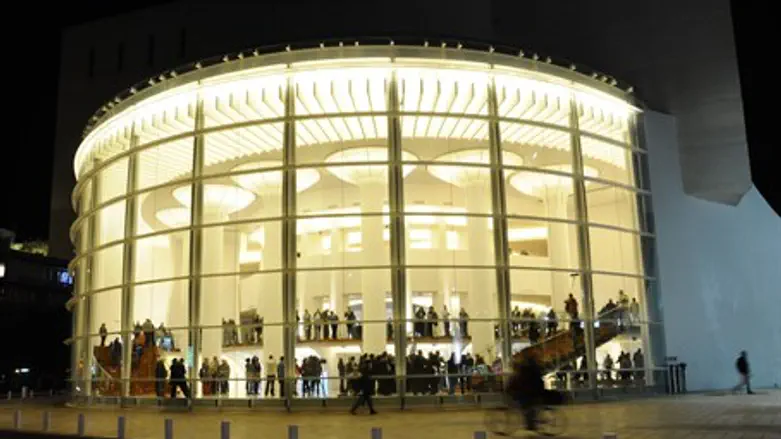
Last week, about thirty-five actors, directors and writers, including Emma Thompson, signed a letter, published in the Guardian, protesting the inclusion of Israel’s National Theatre, HaBimah, at an upcoming Shakespearean festival in London.
In response, the playwrights, actors and writers, Arnold Wesker, Ronlad Harwood, Maureen Lipman, Simon Callow, Louise Mensch and Steven Berkoff, wrote a letter, published in the Guardian, on April 10, stating:
“We are delighted to see the Globe theatre welcoming Israel's national theatre, Habima, to perform The Merchant of Venice in London (Letters, 4 April). Founded in the early 20th century in Moscow, Habima is one of the first Hebrew language theatres, and is a symbol not just of the cultural success of the state of Israel, but also of the resilience of a people who have united to overcome continued persecution throughout their history. Habima itself encountered persecution under the Soviet government as well after the Russian revolution. Now, as then, there are those who wish to oppose their work, seeking to delegitimise the state of Israel and its success, the Jewish people, and even the Hebrew language itself.
Habima's productions have always explored the challenges faced by the Jewish people, and its presentation of The Merchant of Venice on the London stage continues that important mission. Those who wish to hijack the artistic and cultural work of Habima for their own narrow political aims simply remind us of the vital importance of such work. No artists should attempt to silence the expression of other artists simply because they are Israeli. By trying to suppress the cultural exchange of ideas they demonstrate the continued persecution of Jews and Israelis even occurring in 21st-century Britain. We condemn the acts of cultural terrorism that some may try to carry out during Habima's performances. We welcome Israel's national theatre to London as another fine example of the UK and Israel's many shared values.”